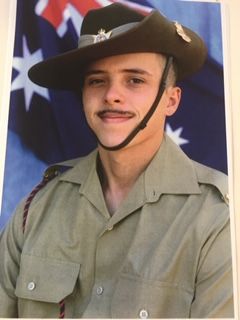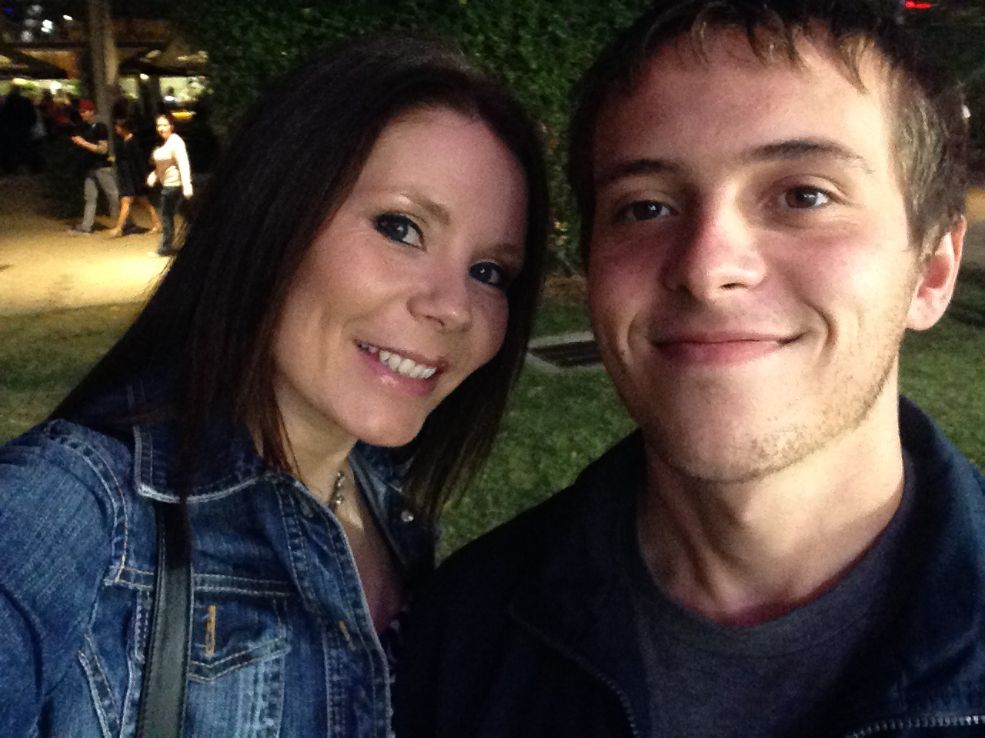While she has confined her investigation of the concept known as moral trauma (formerly moral injury) to the military - where life-and-death decisions are routine - Nikki believes her work will be equally relevant to others who are ethically compromised in the workplace, including first responders, police, social workers and frontline healthcare workers. Nikki was awarded a scholarship from Suicide Prevention Australia to continue her research on veteran mental health in January this year.
"Globally, I hate to think of the number of decisions that have had to be made about whether a person with COVID-19 receives a ventilator or not," Nikki says. "Anyone, regardless of their profession, who is forced to make a split-second, life-affecting or life-changing decision that violates their moral code is vulnerable to moral trauma. I expect it will reach catastrophic rates globally over the next 12 months or so."
What is moral trauma?
Nikki's quest to define moral trauma, what it looks like and its fallout, is part of a PhD thesis inspired by the loss of her son Daniel, an Army soldier, to suicide in 2014. She believes moral trauma is implicated in the suicides of many military servicemen and women. By proposing a new definition of the condition - in an article just published in the International Journal of Mental Health Nursing - Nikki hopes to improve awareness among clinicians, as well as support future diagnosis and treatment approaches.
 "Moral trauma is complex and highly subjective," she says. "It's based on the moral codes, values and frameworks we develop throughout our lives, courtesy of our family, culture, education and experiences. In the military, recruitment training replaces previous civilian identity and moral values with military codes, principles and values that are centred on obedience, commitment and loyalty, no matter what."
"Moral trauma is complex and highly subjective," she says. "It's based on the moral codes, values and frameworks we develop throughout our lives, courtesy of our family, culture, education and experiences. In the military, recruitment training replaces previous civilian identity and moral values with military codes, principles and values that are centred on obedience, commitment and loyalty, no matter what."
Moral trauma arises when a person takes part in or witnesses behaviours or events that violate their deepest values and principles. It can also result from feeling betrayed by somebody they trusted. Nikki has found that its powerful symptoms - feelings of intense guilt, shame, self-condemnation, distrust and alienation - can be felt just as keenly by those in military service as those waiting in the wings.
"Commonly, a person faces a moral dilemma, which forces them to make a moral decision, and that decision causes moral distress that can lead to moral trauma," she says. "When decisions, actions and behaviours cause harm to ourselves or others, they can be very difficult to reconcile morally, and produce an existential crisis.
Feeling morally conflicted can be a normal, human response to abnormal circumstances. But the impacts can be long-lasting and deadly."
In the military, Nikki believes moral trauma increases a person's risk of dying not on the battlefield, but by suicide.
"Moral trauma is all about who you are as a person - it's existential, psychological, emotional and/or spiritual," she says. "It doesn't generally start to manifest until the person has had time to reflect on their experience or might be transitioning back to civilian life. Isolation, shame and guilt are not only the hallmarks of moral trauma; they are factors in suicidal behaviours."
Therapies showing promise
A tool for measuring the extent of moral trauma is still in development, and there are currently no evidence-based treatment programs available in Australia, although acceptance/commitment therapies that focus on acknowledging, accepting and reconciling the trauma are showing promise.
Nikki says treatment is further complicated by the fact that moral trauma can exist independently or co-exist with post-traumatic stress disorder (PTSD). They share similar symptoms like mood disorders, substance abuse and suicidality; however, moral trauma is a distinct construct and should be treated as such.
"We are noticing that for about half the people undergoing treatment for PTSD, it is unsuccessful," she says. "I suspect that's because those people actually have moral trauma.
Unfortunately, a lot of the treatments for PTSD are counter-productive and can make moral trauma worse."
Definitions of moral trauma have, to date, largely drawn on the experiences of US military personnel exposed to war zones and combat. Nikki hopes that by broadening the definition to reference more complex emotions, people experiencing moral trauma will be more inclined to seek help and find it.
Private grief, public good
The work has intensely private importance. Since Daniel's death, Nikki has made it her life's mission to support military veterans struggling with mental health problems.
"My whole PhD journey has been motivated by the desire to stop just one family from going through and having to live with what I live with every single day," she says. "That's the spark that set off this PhD in the first place. And it certainly helps to turn all that negative energy - all that sadness, loss and grief -into something that can potentially help others."
Nikki recently met with Prime Minister Scott Morrison to highlight the specific mental health needs of military veterans and, as part of a group of bereaved mothers, has been pushing for a royal commission into veteran suicide. Mr Morrison has asked to see a copy of her thesis when it is done.


